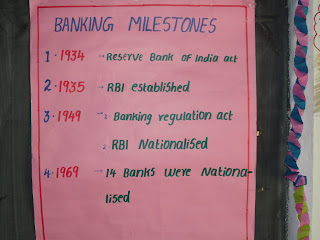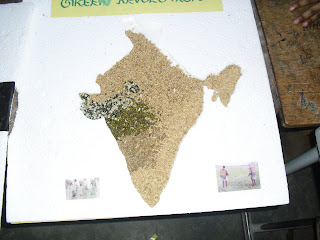Encomiums for B.Com, M.Com
Gone are the days when science courses were the only options that students considered a ticket to employment. If recent trends are to be believed, students are reposing tremendous faith in commerce courses as an option, right from the pre-university level to undergraduate courses.
Increasing job prospects in finance and banking related sectors, student-oriented and employer-friendly syllabus and the course being less expensive than others has made commerce the front-runner among all degree courses, experts feel. Career opportunities start knocking on the doors even when the students are in their final year. Consequently, not only the number of applications for commerce courses multiply by the year, but there is also a distinct improvement in the quality of students taking the route with several meritorious candidates actively choosing commerce over past favourites.
Cut-off marks
The cut-off marks in the general merit category too is moving upward. Even in colleges in remote areas or mofussil centres, the average cut-off mark for admission to B.Com remains stable at 65-70 per cent, despite the fact that the universities are increasing the total intake by 10 per cent every year.
“This year 112 colleges affiliated to Karnatak University-Dharwad (KUD) have admitted 15,000 students for B.Com. Courses such as BBA and BCA are not much in demand for the reason that the fee structure is high and they do not guarantee job opportunities unlike B.Com. The employment generation for BBA or BCA graduates is not as high as for B.Com graduates,” said R.L. Hyderabad, Chairman Department of Studies in Commerce, and S.G. Hudekar, professor in the same department.
Admissions for BBA, BCA, MBA and MCA are witnessing a downward trend. “B.Com has overtaken BBA and BCA for which the admission has come down by an estimated 25 per cent. The preference of the meritorious students has changed over to B.Com,” said Y. Bhaskar Shetty, Principal, Mulky Sundar Ram Shetty College, Shirva, Udupi.
Unlike the earlier trend of colleges seeking the respective university's permission to increase intake for management and computer courses, they now prefer more intake for B.Com, he said.
The commerce faculty of universities revising the syllabus in the most innovative ways and focusing on the needs of the industry were the reasons why this course is booming.
Prof. Hyderabad and Prof. Hundekar said the syllabus revision is done in consultation with professors from various sectors so as to enhance employability of graduates.
Commerce courses have taken the shape of integrated courses adopting innovative ideas. They are not limited to learning commerce theory and accounting. Instead, subjects such as marketing, company affairs, and computer accounting have been incorporated. Making computer accounting a compulsory subject helps the students avoid pursuing computer accounting, Tally etc., separately. These aspects help them face any kind of competition once they pass out, they said.
Good performance
P.S. Yadapadithaya, chairman, Department of Commerce, Mangalore University, said overproduction of management graduates and quality deterioration in management education resulted in high demand for commerce courses.
The performance of commerce graduates during the recession period was better than other graduates, and IT companies retained commerce graduates even during automation. Commerce graduates do well in the National Entrance Test (NET) also.
The syllabus is revised once in three years and the fundamentals of the subjects are strong. Unlike in BBA or MBA, the commerce students in degree or postgraduation receive advanced knowledge that puts them in a better position while competing for jobs, he said.
The trends in campus recruitment is a pointer to all this. Not only are commerce students getting selected in more numbers, certain firms have conducted exclusive campus recruitment for commerce students in Gokte College and J.G. College in Hubli-Dharwad. The students were selected by IT companies and financial institutes for an average starting salary of Rs. 20,000. Nationalised banks including Vijaya Bank and Syndicate Bank have begun campus recruitments.
The fee for courses in commerce remaining comparatively economical has proved to be helpful for meritorious students from the economically weaker sections. Talented students can look forward to an attractive job even when they are in the final year. Moreover, acute shortage in the fields of chartered accountancy, company secretaryship and cost accounting have provided talented students of commerce an opportunity to face national-level tests conducted for selection to these posts. Here too the fee structure is comparatively less, said Prof. Hyderabad.
Word of caution
However, Mr. Yadapadithaya cautioned that commerce courses too would meet the same fate as management or computer courses in the near future if universities fail to ensure maintenance of quality. When there was high demand for management courses, educational institutes lobbied for BBA and MBA courses. Universities too gave permission to start management courses perfunctorily without giving proper attention to infrastructure and faculty.
These factors resulted in deterioration of quality in management education and the employable skills of the candidates too have declined. The same should not happen to commerce courses, he said.
Expressing concern over the high number of commerce graduates getting selected in campus recruitments, he said if the creamy layer opts for lucrative jobs, it will have an adverse impact on postgraduate courses. If talented students do not join postgraduate courses, naturally the quality of teaching and other jobs that demand postgraduates will suffer, he added.
Article published in Hindu daily - a national news



























